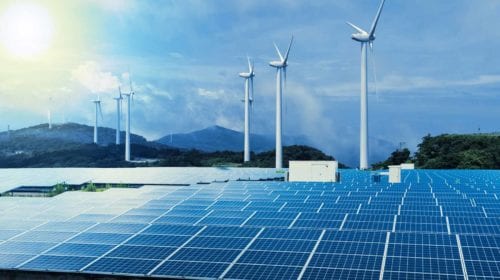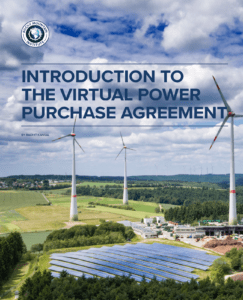
Report | 2019
Virtual Power Purchase Agreement
Introduction to the Virtual Power Purchase Agreement
This paper serves as an introduction to the virtual power purchase agreement (VPPA)—its place in the off-site renewable energy procurement market, how the VPPA works, and why VPPAs have been a popular instrument in the United States thus far. This paper is aimed at renewable energy buyers who are seeking to understand the VPPA mechanism.
There are two types of off-site power purchase agreements (PPAs) in the market:
-
Physical PPA—Within a physical PPA contract, the corporate buyer takes ownership of the electrons produced by the renewable energy project. This transaction places responsibility on the buyer for monetizing/selling the electrons, which is typically achieved by selling them into the wholesale electricity market. Depending on the contract structure, the buyer could also pay for transmission charges.
-
Virtual PPA—Within a VPPA contract, the corporate buyer does not own and is not responsible for the physical electrons generated by the project. The VPPA is purely a financial transaction, exchanging a fixed-price cash flow for a variable-priced cash flow and renewable energy certificates (RECs). Because the VPPA is purely financial, the buyer still needs to meet its electricity load through traditional channels—therefore, the VPPA means the buyer’s relationship with its utility at the retail level remains unchanged.
